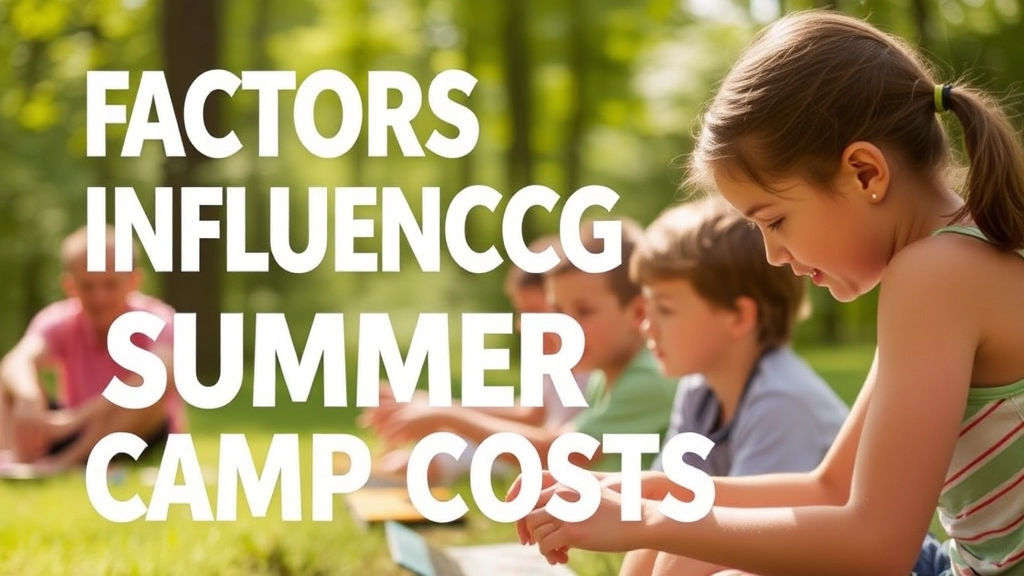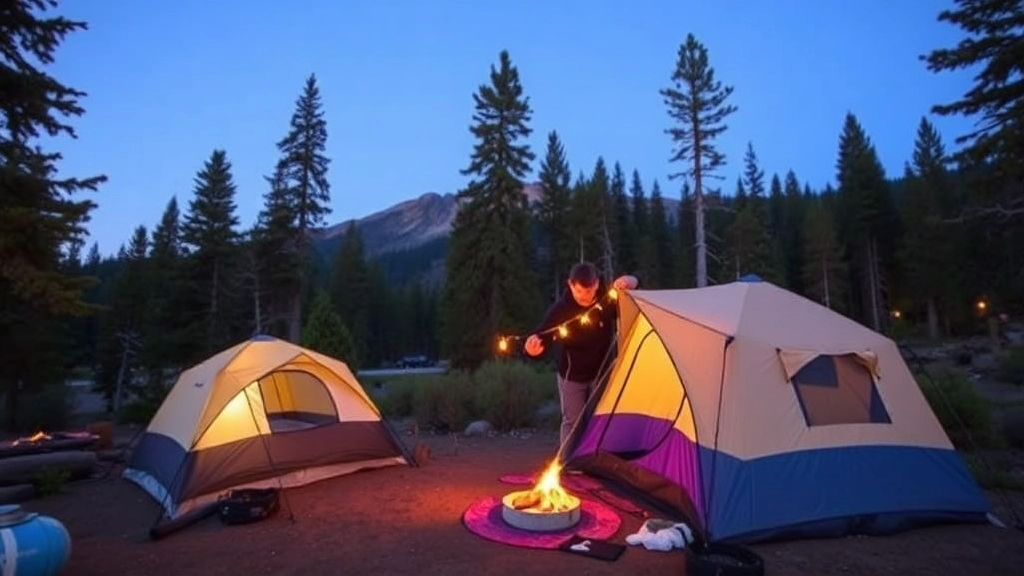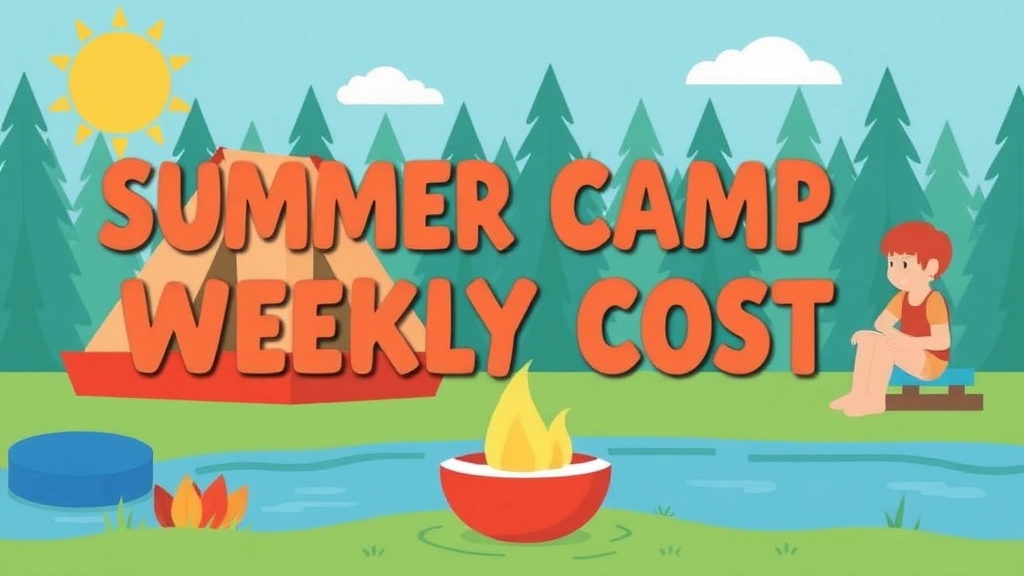Understanding Summer Camp Costs
Summer camps are more than just a seasonal escape for kids; they are an investment in their growth and development. However, the Summer Camp Weekly Cost can vary dramatically based on several factors. In this article, we will explore the different types of camps and their cost variations, the elements influencing these costs, and additional expenses you might encounter beyond the camp tuition.
Beyond the basics, we will also delve into budget-friendly camp options, the price ranges of specialty camps, and the financial aid and discount opportunities available to make camps more affordable. Lastly, we will examine how seasonal timing and session length can impact the overall cost, ensuring you have all the information needed to make a well-informed decision for your child’s summer adventure.
Cost Variations for Different Types of Summer Camps
Ever wondered why some summer camps cost an arm and a leg while others are more budget-friendly? Let’s dive into the nitty-gritty of summer camp costs and break it down like we’re chatting over a cuppa.
Why Do Summer Camp Costs Vary So Much?
When it comes to summer camp costs, the range can be as wide as the Grand Canyon. We’re talking everything from a few hundred quid to several thousand. So, what’s the deal? Why such a difference?
Types of Camps and Their Price Tags
- Day Camps: These are typically more affordable. Think of them like your 9-to-5 jobâkids go during the day and come home at night. Costs are generally lower because there’s no need for overnight accommodation or meals.
- Overnight Camps: Now, these can be a bit pricier. You’re looking at accommodation, meals, and round-the-clock supervision. It’s like a mini holiday for the kids, but with structured activities.
- Specialty Camps: Got a child who’s mad about football or obsessed with coding? Specialty camps focus on specific skills and often bring in expert instructors. This expertise can bump up the price.
- Non-Profit vs. Private Camps: Non-profit camps might offer lower fees or sliding scales based on income. Private camps, on the other hand, often have higher fees due to premium facilities and exclusive activities.
Real Questions Parents Ask
- “Is it worth the money?”
- “Will my child get the attention they need?”
- “How do I know I’m getting value for my investment?”
These are the questions that keep parents up at night. And honestly, the answers can vary based on what you’re looking for in a camp experience.
Breaking Down the Costs
Here’s a quick list of what you’re paying for:
- Facilities: The quality and type of facilities can greatly influence cost. A camp with a swimming pool, climbing wall, and high-tech gear will cost more than one with just the basics.
- Staff: Highly qualified staff can mean higher costs. You’re paying for expertise and safety.
- Activities: The more specialised the activities, the higher the cost. Think horseback riding vs. nature walks.
- Location: Camps in prime locations or with stunning views might charge a premium.
A Story to Illustrate
Imagine you’re at a coffee shop with your mate, and they’re telling you about their child’s summer camp. They chose a day camp because it fit their budget and their child loved the art classes offered. Another friend chimes in, sharing about an overnight camp that cost more but offered a week in the great outdoors, complete with kayaking and hiking. Both had different experiences, but both were happy with the value they received.
For more tips on selecting the right camp for your child, check out our guide on summer camp registration to ensure you secure a spot in the best camp that fits your budget and needs.
Factors Influencing Summer Camp Costs

Ever wondered why summer camp prices are all over the place?
Let’s break it down.
Location, Location, Location
Where the camp is situated plays a massive role in the cost.
- Urban vs. Rural: Camps in big cities are often pricier than those in the countryside.
- Travel Costs: If you’ve got to fly or drive long distances, that’s extra cash out of your pocket.
Type of Camp
Different camps, different costs.
- Day Camps: Generally cheaper because there’s no overnight stay.
- Overnight Camps: More expensive due to lodging and meals.
- Specialty Camps: If your kid’s into robotics or horse riding, expect to pay more.
Duration of Camp
How long your kid stays can also impact the cost.
- One-Week Camps: Less expensive but might not offer as much.
- Multi-Week Camps: Costs more but usually provides a deeper experience.
Staff and Facilities
Quality matters.
- Experienced Staff: Camps with highly qualified instructors often charge more.
- Facilities: Top-notch facilities like swimming pools, climbing walls, or tech labs can drive up the price.
Activities Offered
The more, the merrier—and costlier.
- High-End Activities: Think water skiing, archery, or coding workshops.
- Basic Activities: Simple games and crafts tend to be cheaper.
Meals and Accommodation
Food and lodging can add up.
- Quality of Meals: Organic, gourmet meals? Expect a higher fee.
- Accommodation: Air-conditioned cabins vs. basic tents can make a big difference in cost.
Insurance and Safety Measures
Safety first, but it comes at a price.
- Insurance: Comprehensive insurance plans add to the cost.
- Safety Protocols: Camps with rigorous safety measures might charge more.
Reputation and Brand
Big names come with big price tags.
- Well-Known Camps: Established camps with a solid reputation usually cost more.
- New or Lesser-Known Camps: These might be cheaper but could lack some amenities.
Extras and Add-Ons
Watch out for hidden costs.
- Field Trips: Extra excursions can add to the overall cost.
- Merchandise: Branded t-shirts, hats, and other goodies are additional expenses.
Related Topics
- Cost Variations for Different Types of Summer Camps
- Budget-Friendly Camp Options
- Specialty Camps and Their Price Ranges
Got more questions? Let’s dive into the details together!
Additional Expenses Beyond Camp Tuition
Alright, let’s get real for a moment. You’ve already forked out a hefty sum for your kid’s summer camp tuition, but guess what? That’s just the beginning. The actual cost of summer camp can be a lot more than just the sticker price. So, what are these sneaky extra expenses that could take a bite out of your wallet? Let’s break it down.
Hidden Costs That Sneak Up on You
1. Transportation:
- Getting There: Whether it’s a local day camp or a sleepaway camp far from home, you’ve got to get your kid there somehow. This could mean petrol costs, train tickets, or even flights.
- Daily Commute: For day camps, think about the daily drive back and forth. It adds up!
2. Gear and Supplies:
- Clothing: Camps often have specific dress codes or require uniforms. Plus, you’ll need to stock up on extra clothes because kids tend to get messy. For tips on what to pack, check out our guide on summer camping clothes.
- Equipment: Depending on the camp, you might need to buy special gear. Think sports equipment, musical instruments, or art supplies.
- Bedding and Toiletries: For sleepaway camps, you’ll need to pack bedding, towels, and personal hygiene items.
3. Activities and Excursions:
- Field Trips: Many camps offer optional field trips that can cost extra.
- Special Programmes: Some camps have premium activities like horseback riding, scuba diving, or advanced tech workshops that aren’t included in the base tuition. Explore engaging summer camp curriculum for more ideas.
4. Health and Safety:
- Medical Supplies: If your child has specific medical needs, you might need to provide medications or special equipment.
- Insurance: Some camps require additional health or travel insurance.
5. Communication:
- Phone Calls: If the camp allows phone calls, there might be charges for this.
- Mail Services: Some camps offer packages where you can send letters or care packages, but these come at a price.
6. Camp Store Money:
- Spending Money: Many camps have a camp store where kids can buy snacks, souvenirs, or extra supplies. You’ll need to budget for this as well.
Real-Life Example
I remember sending my niece to an adventure camp last summer. The camp tuition seemed reasonable at first, but once we added up all the extrasâtransportation, a new sleeping bag, extra snacks, and a couple of optional activitiesâit ended up costing almost twice as much. It was a wake-up call for sure!
How to Manage These Costs
To keep these additional expenses from blindsiding you, here are some tips:
Budget-Friendly Camp Options

Finding budget-friendly camp options can be a real lifesaver, right?
Summer camps can cost an arm and a leg, but not all of them have to drain your wallet.
So, let’s dive in and explore some affordable options that won’t break the bank.
Day Camps
Day camps are a fantastic way to keep your kids entertained without the hefty price tag of overnight camps.
They usually run from morning until late afternoon, so you’re saving on accommodation and meals.
Plus, your kids get to come home every night, which can be a huge plus for some families.
Community and Non-Profit Camps
Local community centres and non-profit organisations often offer summer camps at a fraction of the cost of private ones.
These camps can be just as enriching and fun.
You might find sports, arts, and even science-focused camps sponsored by your local council or community groups.
Church and Religious Camps
Many churches and religious organisations offer summer camps that are budget-friendly.
They focus on building community and often incorporate values-based activities.
These camps can be a great option if you’re looking for something affordable and meaningful.
Scout Camps
If your kids are into scouting, their local Scout troop might offer summer camps.
These camps usually focus on outdoor skills, teamwork, and leadership.
And the best part? They’re often very affordable compared to other options.
School-Based Camps
Some schools offer summer programmes that are open to students and sometimes even to the wider community.
These can range from academic enrichment to sports and arts, and they’re usually priced quite reasonably.
Tips to Save Even More
Here are a few tips to make your camp experience even more budget-friendly:
- Early Bird Discounts: Many camps offer discounts if you register early.
- Sibling Discounts: If you’re sending more than one child, ask about sibling discounts.
- Scholarships: Some camps offer scholarships or financial aid. It never hurts to ask.
- Volunteer: Some camps offer discounts or free spots if you volunteer your time.
So, there you have it.
Budget-friendly camp options are out there.
You just need to know where to look.
And remember, the goal is to give your kids a memorable summer without emptying your bank account.
Specialty Camps and Their Price Ranges
Ever wondered why some summer camps cost an arm and a leg while others are more budget-friendly? Let’s dive into specialty camps and their price ranges, because knowing what you’re paying for makes all the difference.
What Are Specialty Camps?
First off, specialty camps are those focused on a specific skill or interest. Think sports camps, arts camps, tech camps, and even adventure camps. These camps are designed to hone in on particular talents or passions, providing a more tailored experience than your typical summer camp.
Why Do Specialty Camps Cost More?
Specialised Staff: These camps often employ experts in their fields. Imagine your kid learning football from a former pro player or coding from a software engineer. Expertise costs money.
Advanced Equipment: Specialty camps usually have top-notch gear. Whether it’s high-end musical instruments, advanced computer systems, or professional sports equipment, the investment in quality tools is significant.
Intensive Programs: The curriculum at specialty camps is often more rigorous and detailed. For instance, a robotics camp might include building and programming a robot from scratch, which is way more intensive than making friendship bracelets.
Price Ranges for Different Types of Specialty Camps
Now, let’s break down the typical costs you might encounter:
- Sports Camps: £300 to £1,000 per week. Depending on the sport and the level of coaching, prices can vary widely.
- Arts Camps: £400 to £1,200 per week. This includes camps focused on visual arts, music, and theatre.
- Tech Camps: £500 to £1,500 per week. Coding, robotics, and game design camps fall into this category.
- Adventure Camps: £450 to £1,300 per week. These camps might include activities like rock climbing, kayaking, and wilderness survival training.
Real Talk: Is It Worth It?
The big question: is shelling out for a specialty camp worth it? Here’s what I think:
- Passion and Talent Development: If your child is genuinely passionate about a subject, a specialty camp can be a fantastic way to deepen that interest.
- Skill Acquisition: These camps can offer skills that might not be available through regular school programs.
- Networking: Kids often meet like-minded peers and mentors who can influence their future career paths.
Tips to Make Specialty Camps More Affordable
If the prices are making you sweat a bit, here are some hacks to make it more manageable:
Financial Aid and Discount Opportunities

Ever looked at summer camp prices and thought, “How on earth am I going to afford this?”
You’re not alone.
Many parents feel the pinch when it comes to summer camp costs.
But don’t stress.
There are financial aid and discount opportunities that can make a significant difference.
Scholarships and Grants
Many camps offer scholarships or grants. These can cover part or even all of the camp fees.
- Need-based scholarships: These are for families who might not have the financial means to pay for camp.
- Merit-based scholarships: These are for kids who excel in specific areas like sports, arts, or academics.
Check out the camp’s website or give them a ring to see what they offer.
Early Bird Discounts
Booking early can save you a bundle. Many camps offer early bird discounts if you sign up months in advance.
So, if you know your kid wants to go to camp, don’t wait.
Sibling Discounts
Got more than one kid?
Some camps offer discounts if you enrol multiple children. It’s a great way to keep everyone happy without breaking the bank.
Referral Discounts
Know other parents looking for summer camps?
Some camps give you a discount if you refer a friend. It’s a win-win.
Payment Plans
If paying a lump sum isn’t feasible, many camps offer payment plans. This allows you to spread the cost over several months.
Local Community Programs
Sometimes, local community centres or councils offer financial aid for summer camps. It’s worth checking out what’s available in your area.
Employer Assistance
Some employers offer financial assistance for summer camps as part of their employee benefits. It’s worth a chat with your HR department.
Real Talk
I remember the first time I looked at summer camp prices. I nearly spat out my coffee.
But then I found out about all these financial aids and discounts and it was like a weight lifted off my shoulders.
So, don’t let the initial sticker shock scare you off. There are ways to make it work.
And trust me, it’s worth it for the experiences and memories your kid will gain.
Seasonal Timing and Session Length
Ever wondered if the time of year or length of the camp session affects the cost?
You’re not alone.
Many parents and guardians ask this question when budgeting for summer camps.
Let’s break it down.
Seasonal Timing:
- Early Bird Discounts: Book early. Camps often offer discounts if you register months in advance. It’s like grabbing a Black Friday deal, but for your kid’s summer fun.
- Peak Season Prices: Camps in July and August tend to be pricier. Everyone wants to send their kids during the prime summer months. Supply and demand, right?
- Off-Peak Savings: June or late August camps can be cheaper. Think of it as flying mid-week instead of on a weekendâless crowded, less expensive.
Session Length:
- Short Sessions (1-2 weeks): Great for first-timers. Costs are lower, but remember, you might pay more per day compared to longer sessions.
- Medium Sessions (3-4 weeks): A good balance. Your child gets the full camp experience without breaking the bank.
- Long Sessions (5+ weeks): Pricier upfront, but often cheaper per day. Plus, your kid gets to dive deep into activities and make lasting friendships.
Real Talk:
I once sent my niece to a two-week camp in early June. We got an early bird discount and saved a bundle. She loved it, and we didn’t have to eat ramen for the rest of the summer.
Pro Tip:
- Check Camp Calendars: Some camps offer flexible session lengths. Mix and match weeks to fit your schedule and budget.
- Ask About Split Sessions: Some camps allow kids to attend non-consecutive weeks. Handy if you’ve got a family holiday planned.
In Summary:
Timing and session length can significantly impact the cost of summer camps.
Plan ahead, keep an eye out for discounts, and consider the length that best fits your budget and your child’s needs.
Got more questions about camp costs? Dive into our sections on Budget-Friendly Camp Options and Financial Aid and Discount Opportunities for more tips.
Frequently Asked Questions (FAQs) about Summer Camp Weekly Costs
What factors influence the cost of summer camps?
Several factors can influence the cost of summer camps, including location, type of camp, duration, staff and facilities, activities offered, meals and accommodation, insurance and safety measures, reputation and brand, and extras and add-ons.
How does the location of a camp affect its cost?
Camps in urban areas tend to be more expensive than those in rural areas. Additionally, travel costs can add to the overall expense if the camp is far from home.
Are day camps cheaper than overnight camps?
Yes, day camps are generally cheaper than overnight camps because they do not include lodging and meals.
What are some budget-friendly camp options?
Budget-friendly options include day camps, community and non-profit camps, church and religious camps, scout camps, and school-based camps.
Can the duration of the camp affect its cost?
Yes, one-week camps are generally less expensive than multi-week camps, which usually offer a more comprehensive experience.
What types of camps are more expensive?
Specialty camps, such as those focused on robotics or horse riding, tend to be more expensive than general camps.
How can I save money on summer camp costs?
You can save money by looking for early bird discounts, sibling discounts, scholarships, and financial aid. Volunteering at the camp can also reduce costs.
What kind of financial aid is available for summer camps?
Financial aid options include need-based and merit-based scholarships, grants, early bird discounts, sibling discounts, referral discounts, payment plans, local community programs, and employer assistance.
Do camps offer discounts for enrolling multiple children?
Yes, many camps offer sibling discounts if you enroll more than one child.
Are there camps that offer payment plans?
Yes, many camps offer payment plans that allow you to spread the cost over several months, making it more manageable.
What are some tips for finding affordable summer camps?
Look for camps offered by local community centers, non-profit organizations, churches, and schools. Additionally, take advantage of early bird discounts, sibling discounts, and financial aid opportunities.
How can the quality of meals and accommodation affect camp costs?
Higher quality meals and better accommodation, such as air-conditioned cabins, can significantly increase the cost of the camp.
Do well-known camps cost more?
Yes, camps with a strong reputation or brand typically charge higher fees compared to newer or lesser-known camps.
What are some hidden costs to be aware of?
Hidden costs can include field trips, merchandise such as branded t-shirts and hats, and additional activities not included in the base fee.
Can I get financial assistance from my employer for summer camp costs?
Some employers offer financial assistance for summer camps as part of their employee benefits. It’s worth checking with your HR department.

